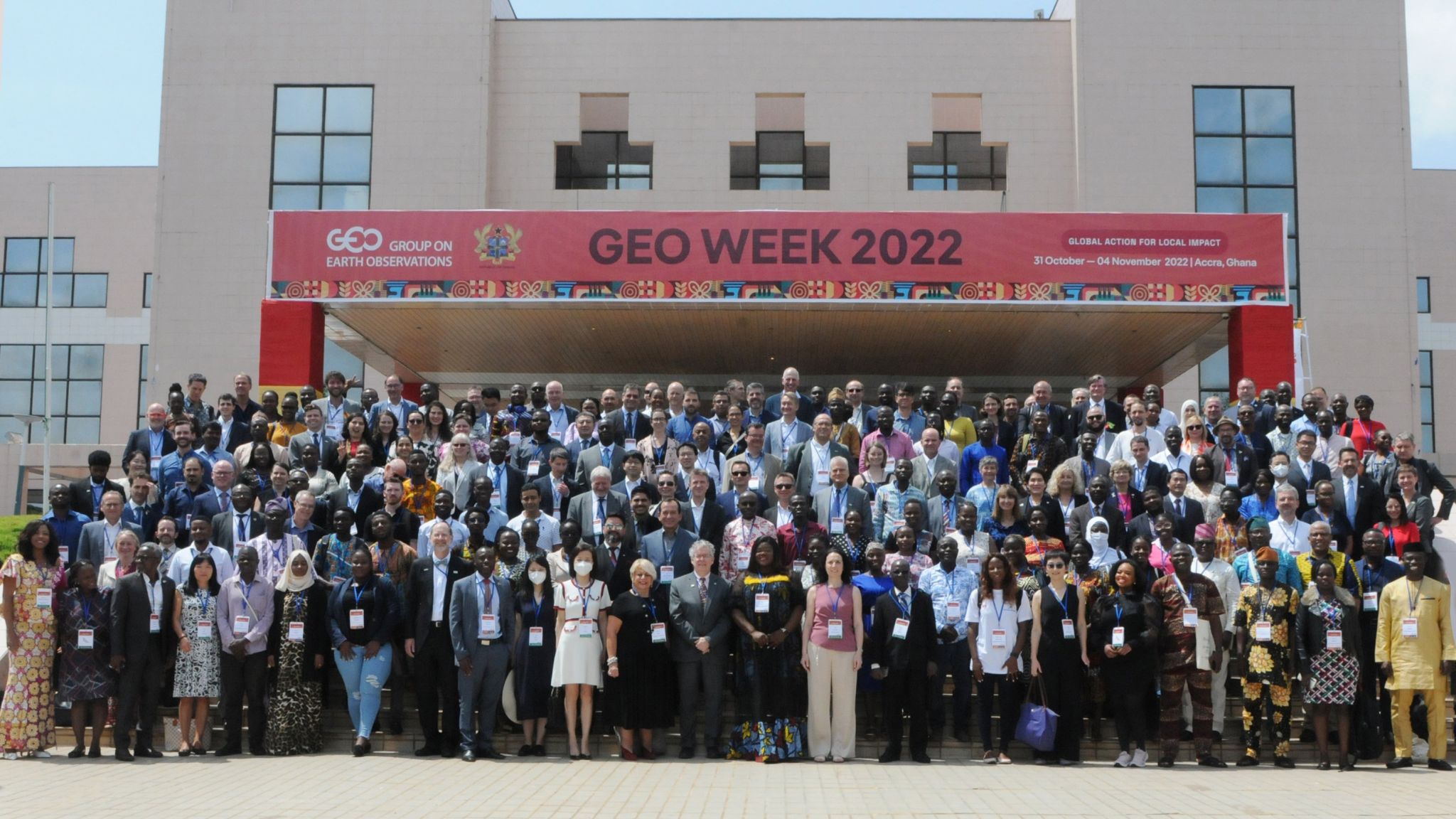Arctic Passion At Geo Week In Accra, Ghana
by Mikko Strahlendorff | Published: 22-Nov-22 | Last updated: 14-Nov-22 | Tags : Arctic event partners | category: NEWS
Read Mikko Strahlendorff's personal account of how he experienced participating in the Group on Earth Observations' GEO Week, in Ghana.

GEO week 2022 participants. Photo: Group on Earth Observations
GEO week is always a full program for two full days. GEO activities presented themselves to the GEO community and many interesting new ideas were born and possible collaborations envisioned. Arctic Passion was involved in the Mountains and Polar Regions side event where Arctic GEOSS exchanged experiences with the GEO Mountains initiative. I moderated the session together with James Thornton moderating from online. An efficient 1,5 hours were filled with mountain-related presentations, then Arctic PASSION and it's Canadian sister project RNA CoObs. Michael Karcher presented our general project highlighting specifically the pilot services being developed. Alice Bradley described similarly the US activities. The last half hour was used to discuss Essential Arctic Variables work. Jan Rene Larsen presented the Shared Arctic Variables and the ROADS process, while James highlighted actions for Essential Mountain Variables.
This exchange showed how we are on a good path with SAVs, as the mountains are very science-centered and would benefit from more end-user engagement. The SAV approach was well appreciated. Attendence was good with almost 10 people in the room and 20 online. In addition to an Arctic PASSION side-event, day 1 was difficult as many parallel sessions competed for time. Mikko attended the open data session, a session in the youth track event and two session in the industry track. It was especially interesting to have a glimpse at how Earth Observation actions are established in Africa. Not bad at all, especially when climate adaptation related funds are fueling many new developments. The youth are enthusiastic, but open data seems not to be understood as a reciprocal interaction. In-situ data holders need to open up more to really make space Earth Observation (EO) deliver. The highlight of the day was in the afternoon: the GEO Indigenous Alliance session with really great actions by tribes in Africa, the Amazon, Native Americans and the NICFI program to make high resolution satellite data freely and openly available for rainforest monitoring.
Day two continued with many interesting parallel events. I moderated a session for Urban resilience projects Harmonia and Eiffel, interacting with the GEO action on Urban Information and Observation GUIO. The attendance at these events was also good and a nice bridge was built to exchange experiences with Paraguay. The Land Degradation Neutrality UN action had a good presence with an interesting session.
Days 3 and 4 are the actual GEO Plenary, dealing with budgets and work programs, but making the event interesting by panels disussing Africas operational EO services or the topics like GEO for nature-based solutions.
Day 3 ended in presenting the state of planning GEO post 2025, with a lead input from the audience and comments to GEOSS restructuring.
Day 4 discussed actions on Oceans, Climate and Biodiversity after presenting what help EO can give for National climate adaptation plans. The day presented the work program 2023-25 highlighting for example ArcticGEOSS as a pilot initiative while raising GEO for Land Degradation Neutrality (LDN) as a flagship, with one new initiative, but also reducing GEO activities overall from about 70 to 45 in total. Some of this being realised by merging actions. At the end of the day, GEO awards were given to individuals and activities. Congrats to the winners.
To make an eventful week a bit more bearable, Friday offered for many a field trip to a Nature Restoration site, where in several locations mangrove is being planted to reenrich the environment and capture carbon from the atmosphere with fast growing plants. The trip entailed a lot of bus driving, but the sites and especially the local people were warm and welcoming. Great work that should find many more sites for more impact. The highlight was this time a strong rainshower showing how the vast grounds with just dirt turned into a large water body. Just the exciting world that mangroves have learned to master. Thanks for another great GEO adventure.
